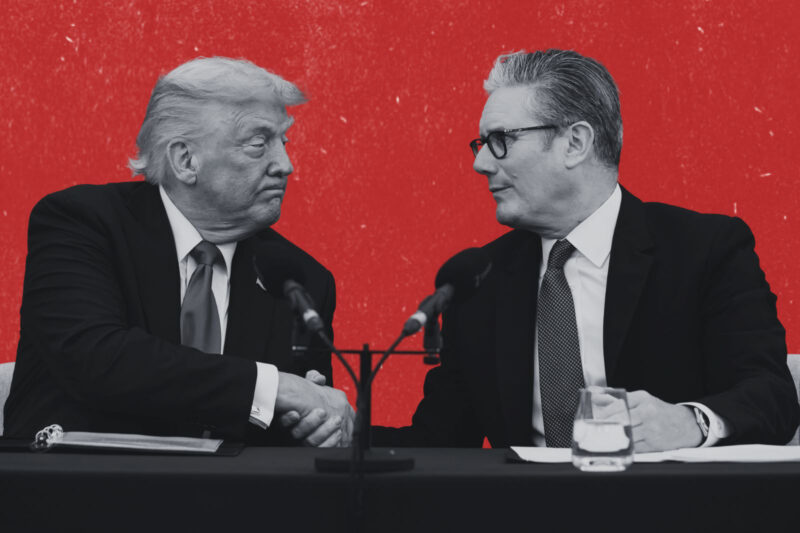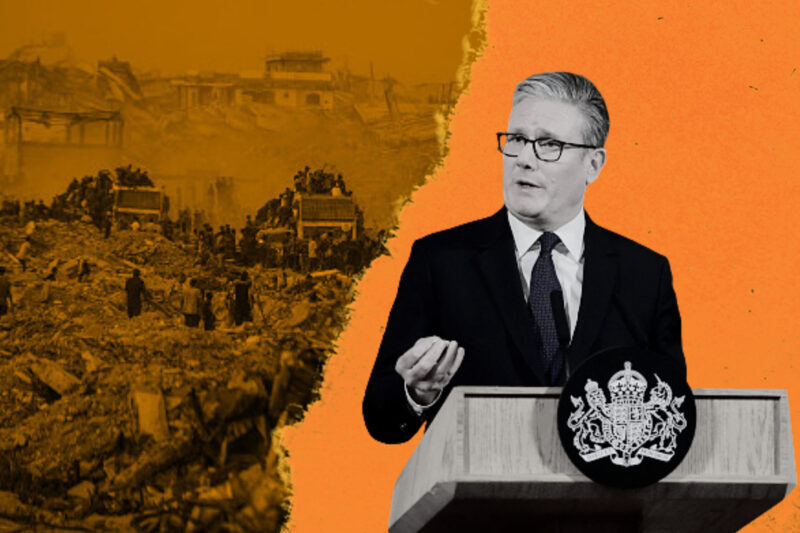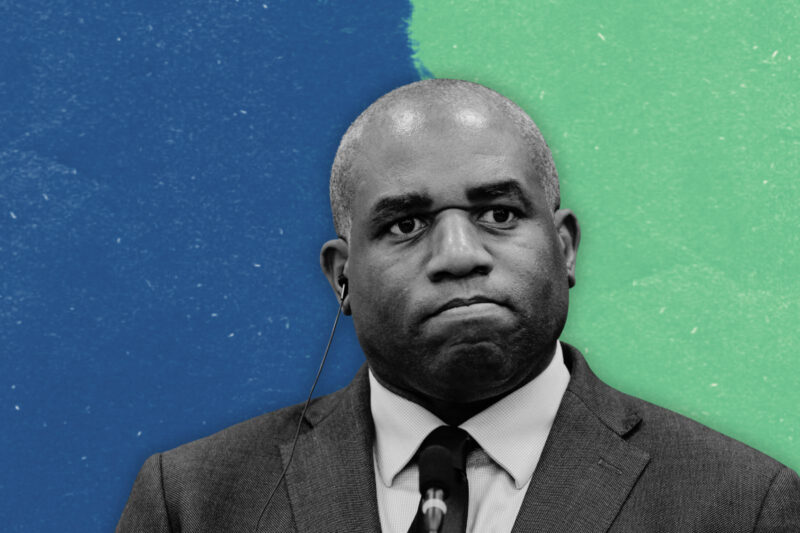Britain’s shift on Israel has exposed a three-way split in Labour
Keir Starmer joined French and Canadian leaders in signing a joint letter criticising Israel’s conduct in Gaza. Their leverage is limited — but real

After more than 18 months of brutal war in Gaza, this week saw a huge shift in western diplomacy towards Israel. The UK prime minister Keir Starmer, French president Emmanuel Macron and Canadian premier Mark Carney told Benjamin Netanyahu on Monday, in unequivocal terms, that they were not happy with Israel’s conduct.
The three leaders, in a joint letter, warned that the decision to let in a “basic quantity of food” after an 11-week siege was “wholly inadequate”. And they called on the Israeli government to “stop its military operations” and “immediately allow humanitarian aid to enter Gaza”.
At the time of the letter, no food, fuel or medicine had entered Gaza since 2 March. Israel had on Sunday agreed to let “a basic amount of food” cross the border, and 93 trucks entered on Tuesday, but the UN’s emergency relief chief Tom Fletcher dismissed the gesture as “a drop in the ocean”, warning that 14,000 babies could die within 48 hours if considerably more aid did not make its way through. Israel has claimed that Hamas has stolen previous aid shipments to sell on the black market, while simultaneously saying that it will seize and “control all of Gaza”.
Britain’s response went beyond rhetoric. On Tuesday, the Foreign, Commonwealth and Development Office summoned Israel’s ambassador, froze trade deal negotiations and slapped new sanctions on West Bank settlers. Foreign secretary David Lammy told the House of Commons Israel’s behaviour was “monstrous” and warned that its rhetoric was “isolating Israel from its friends around the world”. The European Union too launched a review of its Association Agreement with Israel, the legal backbone of €68bn in annual trade.
Netanyahu hit back within hours, arguing that Israel was being asked to “end a defensive war for our survival”, and urging “all European leaders” to adopt Donald Trump’s vision for ending the conflict. In February, while hosting Netanyahu in the Oval Office as the first foreign visitor of his new term, the American president floated the idea of the US “taking ownership” of Gaza, even musing about turning the enclave into the “riviera of the Middle East”. Trump’s embrace of Israel underlines the strategic dilemma facing London, Paris and Ottawa: so long as Washington’s support remains unwavering, their leverage is limited.
Inside the Labour party, the shift has exposed old scars. One backbencher grumbled to me that the statement was “too little, too late”. In the Commons, Imran Hussain, Labour MP for Bradford East, welcomed the government’s stronger words but blasted the “limited action” attached to them. A second group of MPs calls the move “a bold step” — proof, they say, that Labour can still exercise international leadership when it chooses. This group has long argued that publicly supporting the government while privately lobbying for a change in direction — as they say they did in this case — was the best way to deal with the issue. A third group is openly nervous, warning that Britain risks “alienating an ally” while the US doubles down.
The big concern among the most vocal critics on the Labour benches is that, although the rhetoric is definitely stronger, it is unlikely to have any impact to help the people of Gaza. They have several demands. The MPs I speak to say they want to see sanctions on Israel’s most hard-line ministers, a suspension of all arms export licences and the recognition of a Palestinian state. On that last point, Downing Street insiders hint the door is ajar, especially after Macron signalled France might move first, even before the UN Two-State Conference in New York, which begins on 2 June.
For now, the government has issued a threat of “further concrete actions” if Israel does not change course, but those actions remain undefined. Israel’s economy still pivots on the US market; its military edge is American-supplied. Washington’s veto power at the UN Security Council remains the firewall against legal isolation. In blunt terms, as long as Trump considers Israel’s cause worth supporting, Netanyahu can afford to test Europe’s patience.
That does not render Britain’s turn meaningless. Diplomatic taboos seldom break all at once: they crack, then crumble. By pausing trade talks, summoning the ambassador and joining coordinated Franco-Canadian pressure, the scope of permissible discourse has widened. This is why some Labour MPs think this moment is so significant.
It is difficult to predict what will happen next. Western nations remain insistent they want to see a credible ceasefire deal and the release of the remaining hostages taken on 7 October 2023. In the meantime, the war continues, with tens of thousands of innocent people suffering as a result.
Shehab Khan is an award-winning presenter and political correspondent for ITV News.
 Newsletter
Newsletter













